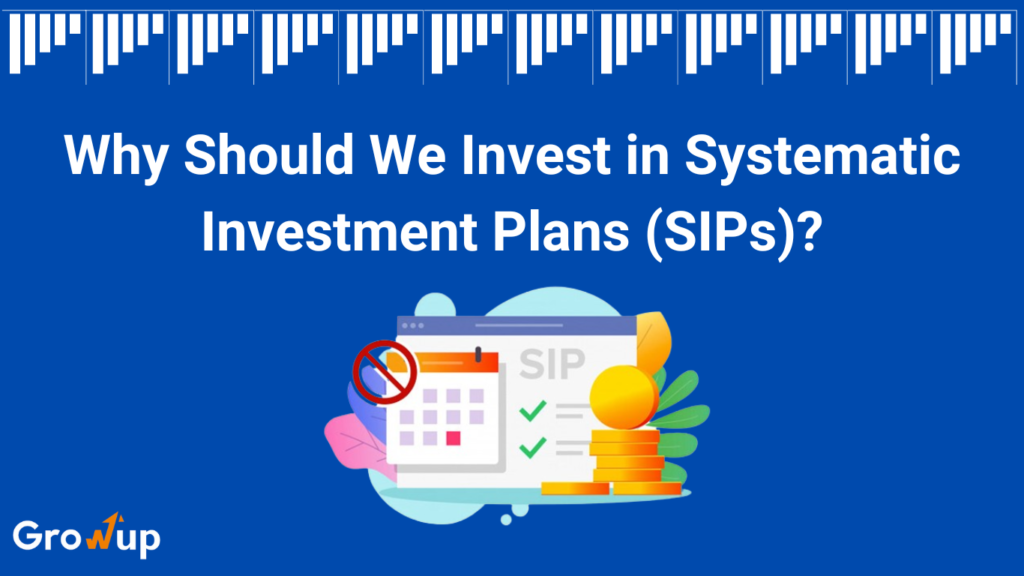Why Should We Invest in Systematic Investment Plans (SIPs)?

Systematic Investment Plans (SIPs) have gained popularity in recent years, partly due to demonetization, which led many individuals to discover the benefits of SIPs and mutual funds. Despite this growing awareness, some investors still misunderstand SIPs, often thinking they are merely an investment product. Before diving deeper into SIPs, it’s crucial to understand the basics of financial markets. If you wish to explore this topic further, consider enrolling in a Basic Financial Markets course.
Table of Contents
Understanding SIPs
A common question among many people is: “Can I invest in SIPs to achieve my financial goals?” Let’s explore this in detail.
What is a Systematic Investment Plan (SIP)?
A SIP is a scheme offered by mutual funds that allows individuals to invest a fixed sum of money at regular intervals—weekly, monthly, or quarterly. This planned approach promotes disciplined saving and helps achieve long-term wealth creation. The invested amount is automatically deducted from the investor’s bank account and converted into mutual fund units based on the current market price, calculated using the Net Asset Value (NAV).
Steps to Follow Before Investing in SIPs:
- Set your financial goals.
- Determine when you will need the money.
- Decide how much you need to invest.
- Choose the right SIP plan.
The investment can be made via post-dated checks or through ECS, with a standing instruction to the bank to auto-debit the amount.
Benefits of Systematic Investment Plans
SIPs offer the advantages of Rupee-Cost Averaging and the Power of Compounding.
Rupee-Cost Averaging: When you invest regularly, you buy more units when prices are low and fewer units when prices are high, reducing the average cost per unit over time.
Example:
The average cost per unit is Rs 14. If the NAV at the end of May is Rs 17, the investment’s value would be Rs 2,448 (144 units * 17). A lump-sum investment of Rs 2,000 on April 7 would be worth only Rs 2,266 (2000/15 * 17).Date
NAV
Amount (Rs)
Units
7-18 April
15
1000
67
7-18 may
13
1000
77
Total
–
2000
144
- Power of Compounding: The earlier you start investing, the more time your money has to grow. For instance, starting at age 40 with Rs 10,000 monthly, you’d have Rs 52.4 lakh by age 60, assuming a 7% annual growth. Starting ten years earlier would result in Rs 1.22 crore by age 60.
How Does SIP Work?
Money is auto-debited from your bank account and invested in a specific mutual fund scheme. You receive units based on the NAV on the day of investment. Each investment adds more units to your account.
Setting Up a SIP:
Online:
- Ensure KYC compliance.
- Choose an amount and the SIP date.
- Register the fund house as a biller in your online bank account.
Example:
- Visit the DSP Mutual Fund website: DSP Mutual Fund
- Follow the instructions to set up a SIP after ensuring KYC compliance.
Offline:
- Fill out the necessary forms, providing details like name, address, fund name, bank details, SIP date, and frequency.
- Submit the required documents and ensure proper paperwork.
Types of SIPs:
- Flexible SIP: Adjust investment amounts based on cash flow.
- Top-up SIP: Increase periodic contributions over time.
- Permanent SIP: No end date, continues until stopped.
- Trigger SIP: Starts based on specific NAV or market index levels.
Pros and Cons of SIPs:
Pros:
- Risk Reduction: Periodic investments over time help mitigate market volatility.
- Discipline: Regular investments promote saving habits.
- Flexibility: Adjust investments based on income flow.
- Automation: Investments occur automatically.
Cons:
- Income Dependency: Not suitable for those without a regular income.
- Market Conditions: Lump-sum investments may be better in consistently rising markets.
- Investment Amount: Cannot change investment amounts based on market fluctuations.
- Account Balance: Insufficient balance can lead to missed investments.
Important Points:
- SIPs can be permanent or for a limited period.
- They help mitigate market volatility through regular investments.
- SIPs are not ideal for those without a regular income.